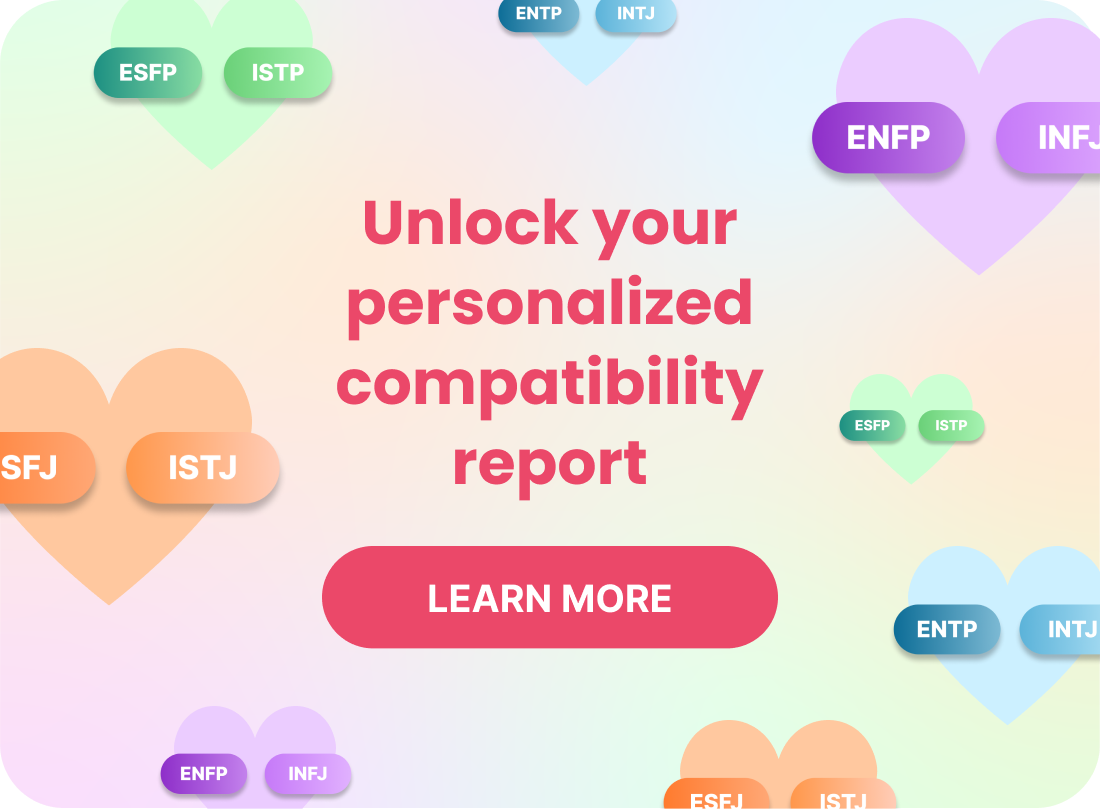10 Signs You’re An Anxious Introvert
Do you find yourself constantly worrying about things that might happen in the future? Do you feel overwhelmed by social situations and find it difficult to make friends? If so, you might be an anxious introvert.

Do you find yourself constantly worrying about things that might happen in the future? Do you feel overwhelmed by social situations and find it difficult to make friends? If so, you might be an anxious introvert.
Introverts are often misunderstood, and many people assume that they are shy or anti-social. But this isn’t always the case. Introverts can enjoy socializing, but they also need time alone to recharge their batteries. If you’re an anxious introvert, then you know what it’s like to feel like a stranger in your own skin.
You may feel like everyone else seems to have it all together, while you’re struggling just to get through the day. But don’t worry! You’re not alone.
10 Signs You’re An Anxious Introvert
So, let’s take a look at the ten signs that you might be an anxious introvert.
1. You prefer to spend time alone and quickly feel stressed in social situations.
It’s typical for introverts to want to spend time alone. However, if you venture out into the world of socializing and suddenly feel overwhelmed and stressed from being around so many people, this could be an indicator that you’re an anxious introvert. Being with groups of people is draining for all introverts after a certain period of time, but if you’re an anxious introvert, you’ll find the situation distressing rather than tiring.

2. You worry about what people think of you and have difficulty speaking up.
Finding it difficult to voice your opinion is a common sign of someone who suffers from anxiety. Anxious introverts overthink everything they’ve said and worry that they said something wrong or embarrassing. This is their anxious brain playing tricks on them. When you suffer from anxiety and you are also an introvert, it can be especially hard. Introverts can find large groups overwhelming anyway, never mind when they also suffer from anxiety.
3. You often feel like you don’t fit in and get anxious when meeting new people or going to unfamiliar places.
Meeting new people can always be a little scary. Will they like you? Will you like them? Will you have enough to talk about? Meeting new people can be uncomfortable, for both introverts and extroverts. Meeting new people is a natural, unavoidable part of life, but it can be very scary for anxious introverts. Not only are you innately more private as an introverted person, but you’re more likely to struggle with overthinking everything about the scenario.

4. You feel on edge when exposed to noises and bright lights.
No one is particularly fond of loud noises and bright lights in your face, but none more so than anxious introverts. If your senses are heightened due to being in an anxious state of mind, then it’s likely any kind of stimuli will be overwhelming and could send you into an anxiety attack. There are scientific reasons as to why introverts are different from extroverts, and sensitivity to the outer world can be even more heightened for anxious introverts.
5. You have difficulty expressing yourself and often feel like no one understands you.
Ever struggle to get your thoughts out? Ever wish that you could just have someone read your mind so that you don’t have to try to put your thoughts into words? And even when you do put them into words, it comes out in the wrong way? This could be a common sign that you are struggling as an anxious introvert. It’s common for anxious introverts to feel alone, particularly when it can look like everyone else is gliding through life without a care in the world.
6. You feel lonely even when surrounded by people and often withdraw.
Being surrounded by people but not feeling seen or understood can be the loneliest feeling in the world. For an anxious introvert who overthinks all of their actions, it can be too much to deal with, so they would rather just stay quiet or not get involved. Going out into the world can feel scary while staying in can give anxious introverts a sense of safety and security. For the sake of your long-term mental health, it’s important not to get caught up in this cycle, though.

7. You have trouble sleeping because your mind is always racing.
A busy, overwhelmed mind is just a daily reality for anxious people. If you overthink everything and your brain feels like it’s rushing through a million thoughts at once, this could be a sign that you’re an anxious introvert. If you pair this with being a natural worrier, you’ve got a recipe for poor sleep. The irony is that not getting enough rest can make the other symptoms on this list worse, so it’s something to bear in mind.
8. You often feel like an impostor and struggle with self-doubt.
Imposter syndrome is real. No matter who you are, it’s likely that at some point in your life, you have struggled with the idea that you “shouldn’t” be doing what you are doing. Or that you’re definitely not the most qualified person for a job. This comes from a place of low self-esteem and is a classic sign of an anxious introvert.
9. You are highly sensitive to criticism and feel like everyone is judging you.
No one likes to be criticized, but if you’re an anxious introvert, it can be particularly difficult. You’re already your own worst critic, so hearing external confirmation of those feelings can make you feel extra anxious. Your brain is telling you that everyone is laughing at you or judging you, so when someone expresses something even remotely negative, it can send you into a downward spiral.

10. You have trouble saying “no” to people and find it difficult to stand up for yourself.
Upsetting people is the number one thing you try to avoid. You don’t want to cause any difficulty, and you just want everyone to get along. Feeling tension or negative emotions can make you feel more anxious. This means that you can end up putting others first and letting them walk all over you just to avoid any conflict or criticism. Sticking up for yourself is out of the question because it disrupts harmony and peace.
Introversion and anxiety aren’t the same thing
Introversion is a personality trait that involves preferring to find energy and fulfillment through internal rather than external sources. It often involves feeling more invigorated after spending time alone or in small, selective social circles.
Anxiety, on the other hand, is an intense feeling of worry, fear, or unease about something with an uncertain outcome. It can involve physiological and psychological signs, such as increased heart rate, tremors, difficulty focusing or concentrating, and feelings of dread.
While anxious introversion is not a diagnosable mental health condition, it does describe the experience of someone who is both an introvert and struggles with anxiety. This type of person may experience increased levels of stress in social situations and often needs more time alone to recharge. They may also be prone to worrying or ruminating on certain topics as a way of attempting to gain control.
It is important for those who identify as anxious introverts to practice self-care and find ways to manage their anxiety.
Where does shyness come into this?
Shyness is the feeling of discomfort in social situations. It often involves feelings of embarrassment or awkwardness and a desire to avoid being noticed by other people. It can be related to introversion as some introverts may tend to feel shyer than extroverts; however, it is not the same thing as introversion.
Shyness might mean that you’re not comfortable with speaking publicly, or maybe you get nervous meeting new people.
It’s important to note that introverts can be just as confident as extroverts. It’s just that they show their confidence in a different way. They tend to have a more understated manner.
Being shy and being an introvert can often manifest themselves in similar ways, but they come from very different places. Being shy comes from a place of discomfort while being an introvert is a natural disposition that results from focusing primarily on your inner world.
Ultimately, we can all experience shyness at different points in our lives, but being an introvert is a more permanent state of where you get your energy from and how you feel after spending time with lots of people.
How to deal with being an anxious introvert
If these signs sound familiar, then there’s a good chance you’re an anxious introvert. Fortunately, there are many ways to manage your anxiety and become more comfortable in everyday situations.
Start by understanding your triggers and remind yourself that as an introvert, you are capable of great things! Introversion can be a powerful strength. With the right skills, you can learn to manage your anxiety and be confident when needed.
The most important thing is to take care of yourself and find ways to cope with your anxiety. Reaching out to friends, family, or a professional can be helpful, and we explore this in the section below.
Other ways you can help yourself if you’re an anxious introvert are:
– Learning healthy coping mechanisms
– Practicing self-care and relaxation techniques
– Utilizing breathing exercises
– Setting realistic goals for yourself
– Creating a support system of trusted people who understand your personality type
– Making time to spend alone to recharge and de-stress.
Taking the time to practice self-care and find ways to manage your anxious, introverted tendencies will help you live a more balanced and harmonious life. Remember that you are capable of amazing things, even if it doesn’t always feel like it! With the right tools and support, everything is possible. Good luck!
When to reach out for help
Anyone suffering from feelings of anxiety may benefit from reaching out for help in any number of ways. You don’t have to suffer alone, and following the tips above on how to deal with being an anxious introvert can help you.
Anxious introverts often feel overwhelmed and struggle to find ways to cope with their feelings. If left unchecked, anxiety can lead to significant mental health issues like depression and even physical symptoms such as fatigue and insomnia. While it’s important for all types of people to seek help when they need it, anxious introverts might be less likely to do so.
There’s no one right way to deal with being an anxious introvert. Some prefer to chat with friends, some are more comfortable talking to their family members, and others choose to talk to a professional. However, it’s worth bearing in mind that external support can be beneficial when it comes to helping to deal with anxious feelings.
There are many tools you can use in order to manage your anxiety symptoms, but the first step is being aware of yourself and your limitations.
Being an introvert is not a bad thing, but being an anxious introvert can cause unnecessary stress in your day-to-day life. Being aware of this is the first step towards finding the tools that can help manage your anxiety symptoms and, in turn, make your life that little bit easier.
Introvert blog post recommendations
If you found this post helpful, you might also enjoy 33 Hilarious Memes That Every Introvert Will Relate To or 100 Best Quotes About Introversion.




